

This is a text-based videogame that teaches you enough of the rules of Exalted to get you started with the tabletop game. It requires a window of 800px width, but works best at 1600px width or more (so the character sheet sits side-by-side with the text).
If you don't know what a tabletop roleplaying game is, keep reading.
If you're familiar with tabletop RPGs but not Exalted, keep reading but skip the first section.
If you know what Exalted is but not how to play, start the tutorial.
Exalted is a fun way to spend time with your friends.
To elaborate, Exalted is a tabletop roleplaying game of heroic fantasy.
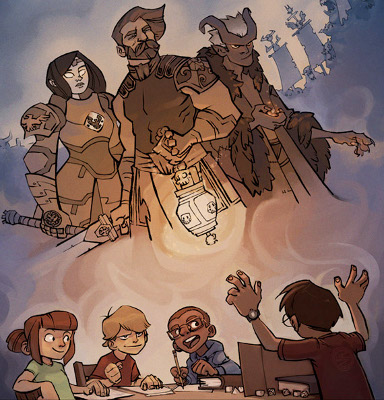
Tabletop RPGs are a bit like this.
Friends gathered around a table (or IRC channel, web forum, Skype etc.), playing out a drama involving a group of protagonists they control.
This drama takes place in the imagination of the players, because that's cheaper and easier than getting a computer to render it.
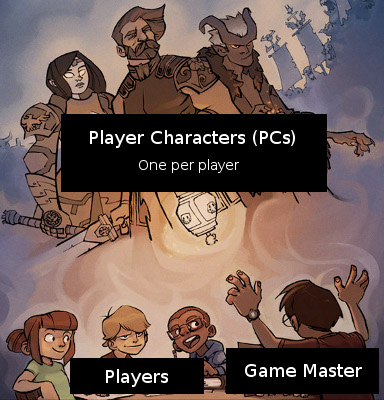
In most RPGs, each player controls a single protagonist of their creation, a "player character". It's like controlling a character in a videogame combined with acting a role in an improv radio play. The "PCs" are allies and their players cooperate.
One member of the group is the Game Master, who doesn't control a protagonist, but instead describes the world and the people our heroes encounter.

As games, RPGs have rules. Usually this involves rolling dice to see if things turn out the way the protagonists want.
Some games have simple rules that help resolve conflicts over where the story goes next. Others are intricate tactical affairs where the group's skill as players is decisive.
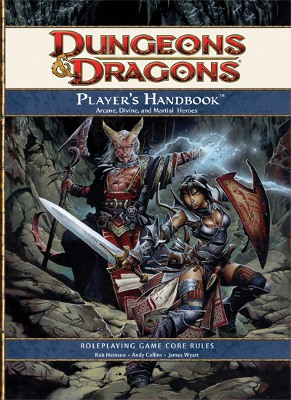
Dungeons & Dragons is the most famous tabletop RPG and still the most popular. The protagonists are adventurers in a fantasy world, like the Fellowship in The Lord of the Rings, risking life and limb on grand quests or for the lure of treasure. They grow more powerful as they survive adventures, and the group may meet regularly to continue their story, sometimes over the course of years.
Most games are similar to D&D, differing in genre, rules or setting while keeping the same basic structure...

...but not all. There are games where there is no Game Master, games that play out as self-contained stories, games where you don't use dice.
You could be playing out a blind date in Breaking the Ice, making your own HBO-style drama in Primetime Adventures, or spontaneously generating a Coen brothers film in Fiasco.
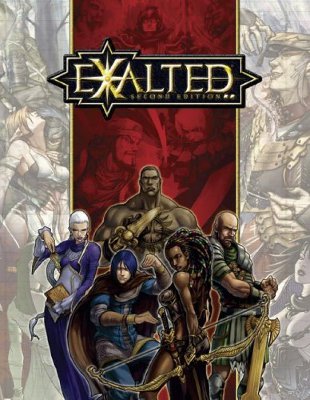
Exalted is the game we're learning about in this tutorial. It's similar to D&D, but with crucial distinctions in both its rules and its fictional world that give it a rich and unique flavour.
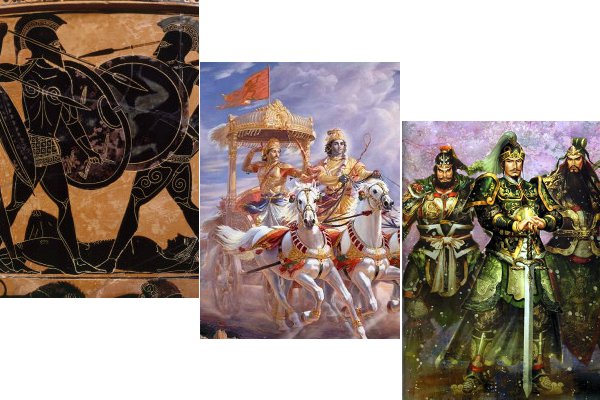
Exalted is heroic in the classical sense. The protagonists are defined by their passions, drive and ability to change the world, as are their antagonists and allies. The game emphasises the clash of epic personalities, each feeling justified by their own ideologies, over clear-cut battles between good and evil.
The people you play and meet in Exalted would feel right at home in the Illiad, the Mahabarata or the Romance of the Three Kingdoms.

Exalted games take place in a fantastic world. Creation is vast and flat, with poles that are elemental rather than magnetic.
Once ruled by a society of unimaginable magical and technological power, successive disasters have reduced it to a world where tiny fragmented kingdoms fight over ancient relics with sword and arrow. The lesser gods that manage nature are corrupt; the greater gods are absent, Exalting chosen humans to the heights of power but then leaving them to their own devices.

Exalted assumes an adult audience. Most games are played predominately by adults, but Exalted material deals explicitly with oppression, drug use, slavery and sex. It's not suitable for children.
This tutorial does not emphasise adult themes, but children are nonetheless invited to get off my lawn.
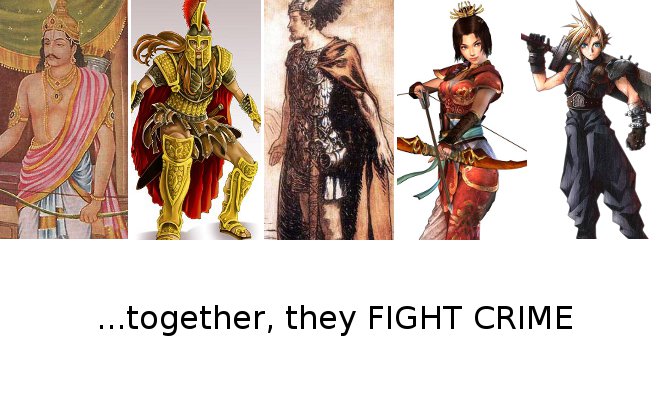
Exalted draws equally from heroic myth, pulp fantasy and modern wuxia, animation and video games. It avoids the tropes of western high fantasy (already well-served by D&D and its kin), but otherwise pillages freely from across the world.
It's the sort of game where Yudhisthira might establish a righteous kingdom with the aid of Penthesilea, Sigurd, Sun Shang Xiang and Cloud Strife.
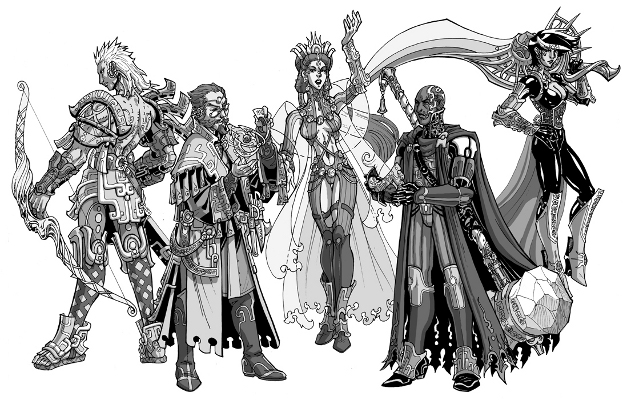
The first time you play Exalted, you will play a character of your own creation who is a member of the Solar Exalted.
Solar Exalted are chosen from the most heroic of mortals as champions of the mightiest of gods, the Unconquered Sun. A Solar Exaltation might reinvigorate a famous general on her deathbed, or lift up a teenage slave and bring his hidden potential into the light. The only common element between Solars before their Exaltation is the ability and drive to change the world; the Unconquered Sun gives them peerless tools to do so.
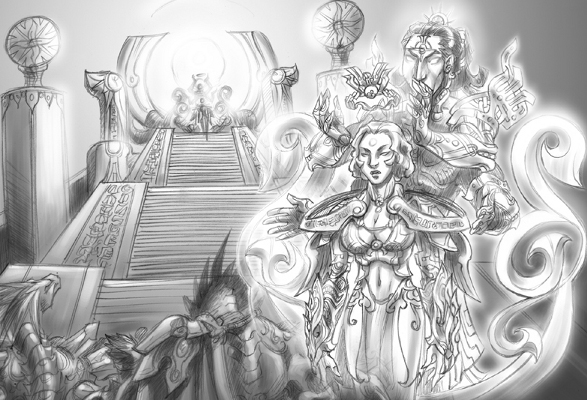
The default theme for Solars is playing as god-kings of a previous age, returned to set a hostile world to rights.
But no theme is mandatory; Solars can come from anywhere in the vastness of Creation, and can be any type of person you can imagine. All that is required is the drive to change the world.
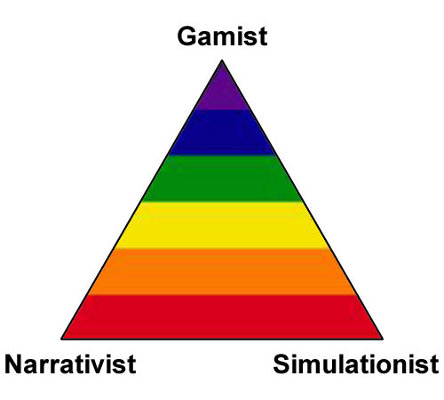
Tabletop RPGs can be understood to support three agendas to varying degrees: to simulate a fictional world, to provide a satisfying story, and to be fun games.
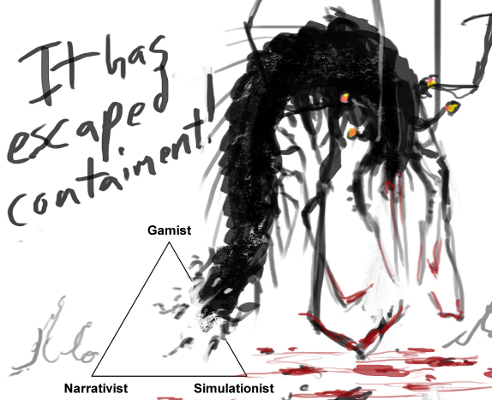
Exalted's response to this balancing act is "I can fit all that in my mouth!"
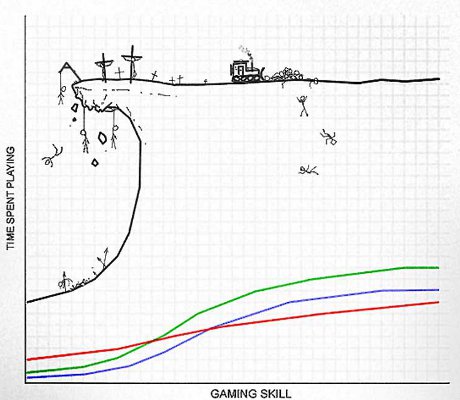
This creates something of an accessibility problem.
This tutorial is a text-based videogame aimed at lowering that barrier to entry. Playing it will equip you with enough of the basics to make good decisions when bringing your own hero to life around the table with your friends.
You'll play a pre-made hero, Sakuya Thrice-Elegant, through the events that lead to her ascension to the Solar Exalted. You won't have the same degree of freedom and scope for imagination as you will playing with your friends at the table, but you will get a gentle introduction to the rules of the game.
Storyteller (ST): This is the term used for "Game Master" in games published by White Wolf. In this tutorial, the role of the ST is filled by the software and pre-written text - when you're reading a description of a scene or the actions of another character, that's something your ST would normally be describing.
PC: Player Character. A protagonist of the game, controlled by a player rather than the ST. In this tutorial, your PC is Sakuya Thrice-Elegant, and due to the limitations of the software you have less control over her than you will your own hero in a real game.
NPC: Non-Player Character. Any character in the game world who is not controlled by a player, from the antagonist of a campaign to the nameless street-sweeper introduced for a few seconds of colour. In this tutorial everyone who isn't Sakuya Thrice-Elegant is an NPC.
Certainly.
My name is Jye Nicolson aka Mengtzu fka Kasumi. I've been playing and ranting about Exalted on the internet for most of my adult life; it's my most or least favourite game depending on the day you ask.
I found myself obliged to improve my Javascript skills, and I've long brooded on Exalted's lack of accessibility. This is my humble attempt to solve both these problems.
Exalted, Creation and the Storyteller game system are the work of White Wolf/CCP; this fan-work is intended to popularise their game, not challenge their copyright. Vector source for dice icons courtesy of Hai-Etlik. All other images pillaged randomly from the internet; their use is not intended as a challenge to the rights of the artists or owners (known artists: Melissa Uran, Taizo Bettin, ~zazB). This application uses JQuery and JQuery UI. All other code by Jye Nicolson. All text by Jye Nicolson. Please attribute if you find it useful.